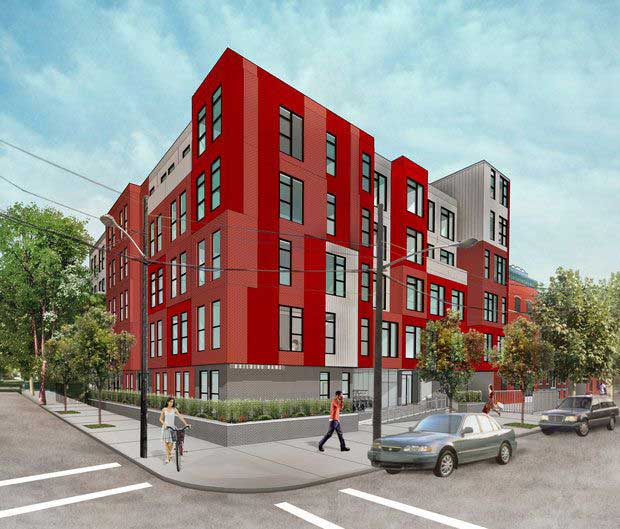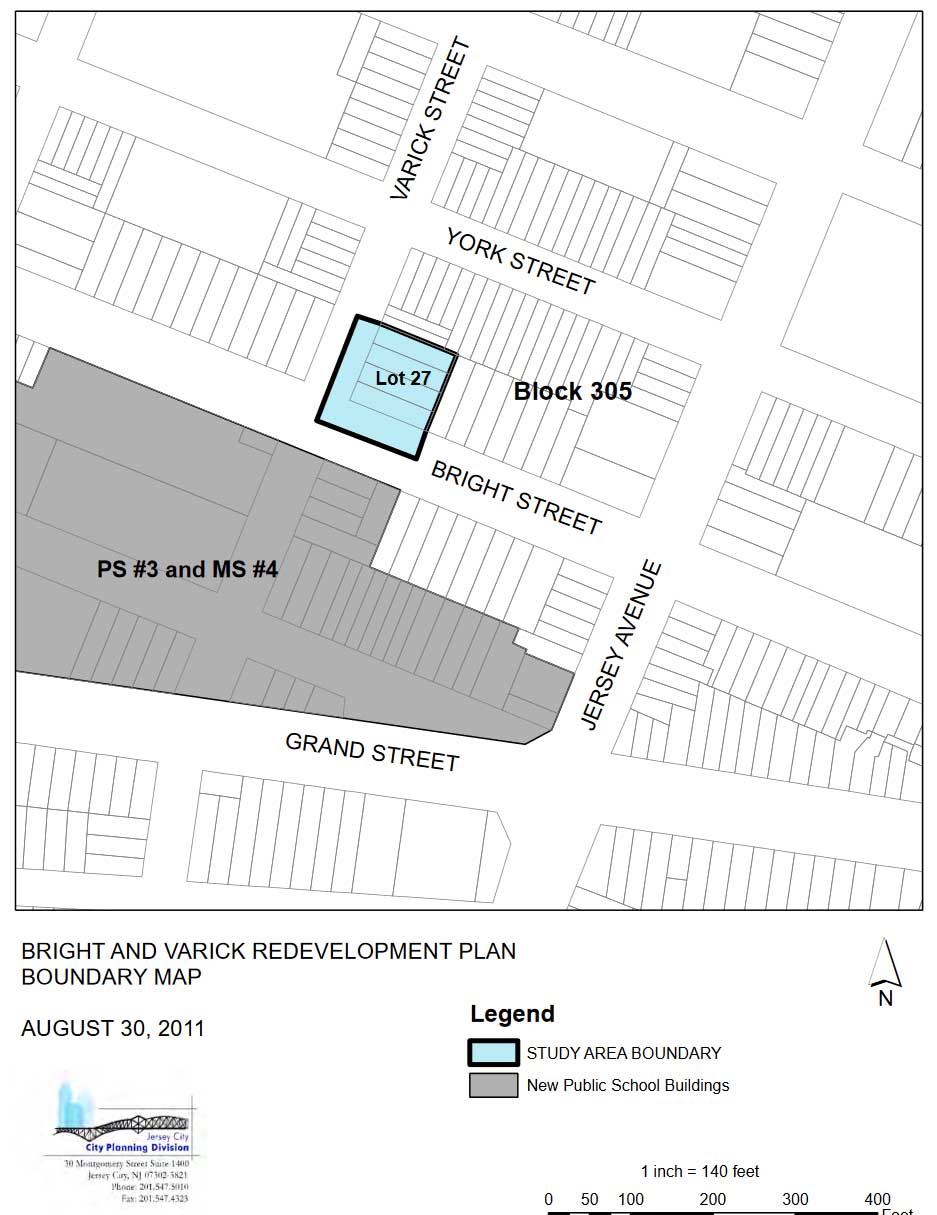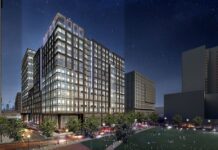
A micro-unit project that has faced significant community opposition has officially been sold to a new developer, who has indicated that they could significantly scale the development back from its original incarnation.
The hotly-debated development was set to feature 87 residential units averaging 340 square feet, initially gaining approvals in 2014 after a long process. The property, at the intersection of Bright and Varick Streets in Jersey City’s Van Vorst Park neighborhood, had its very own redevelopment plan approved in November 2011 that had no density maximums or minimum parking requirements.
Those parameters allowed Rushman-Dillon to submit plans for their five-story micro-unit project that didn’t include any on-site parking spaces. Jersey City’s Planning Board did not hear the application in a timely manner and later rejected the plans in January 2014, but Rushman-Dillon sued to overturn the denial and won in court later that year. A long appeals process spearheaded by the city concluded late last year when the court’s decision to grant approvals to the project was upheld.

Now, Rushman-Dillon has officially sold the property to Varick Partners LLC, a subsidiary of Jersey City-based Point Capital Development. The company has several other projects in the works locally, including developments at 280 Newark Avenue and 125 Garabrant Street. The sale of the Bright and Varick lot was approved by the Jersey City Redevelopment Agency (JCRA) in March.
The new property owner and Point Capital Co-Founder John Fio Rito have already submitted a Letter of Intent to the agency outlining proposed changes to the scope of the project, which would lower the number of living units to 40 and add 15 parking spaces. A resolution passed on the matter authorizes the Executive Director of the JCRA to negotiate further amendments to the previous redevelopment agreement.
Jersey City Mayor Steve Fulop, who supported the court challenge to the approval, tweeted last month that he was “happy to share as of last week [the Bright and Varick] issue is closed, ownership transferred, and a final win for residents.” However, the initial redevelopment plan that allowed the micro-units in the first place hasn’t been modified at all and even if it were, the previous approvals awarded by the court would still be valid.
The sale of the property to Point Capital also has no effect on the previously approved plans, so the micro-unit development could still get built as-of-right with no additional approvals. For their part, Point Capital has reached out to the Van Vorst Park Association and will be officially presenting their revamped plans to the organization at their June 19th meeting, which is open to members of the public.


